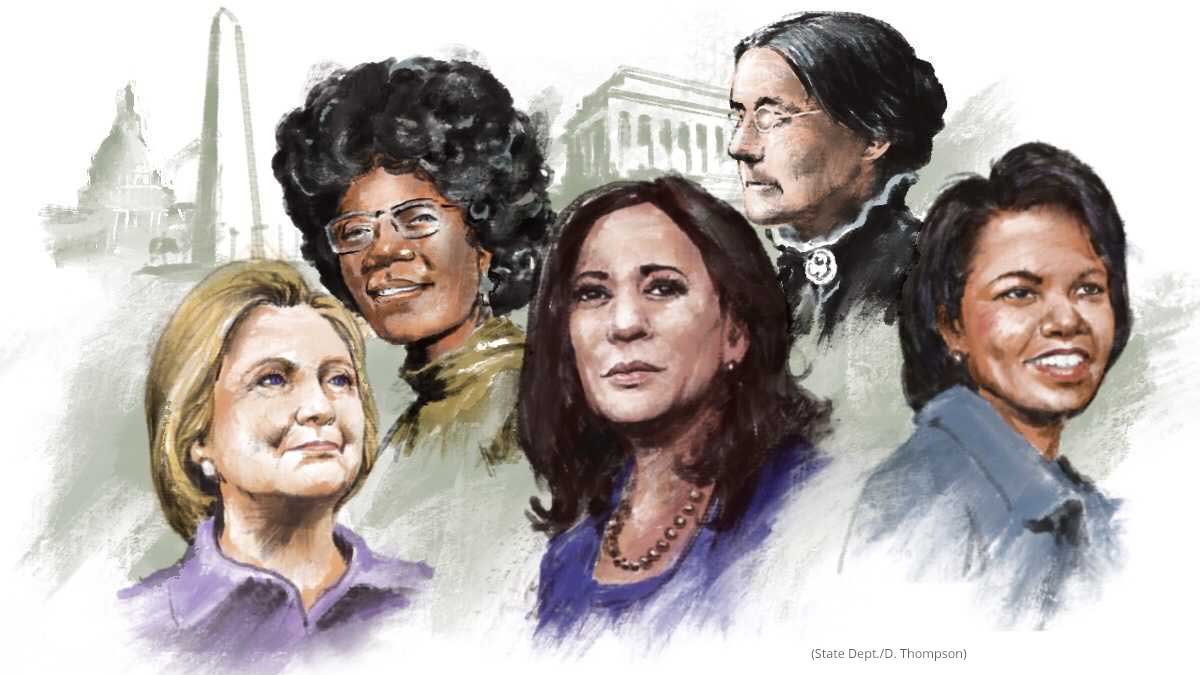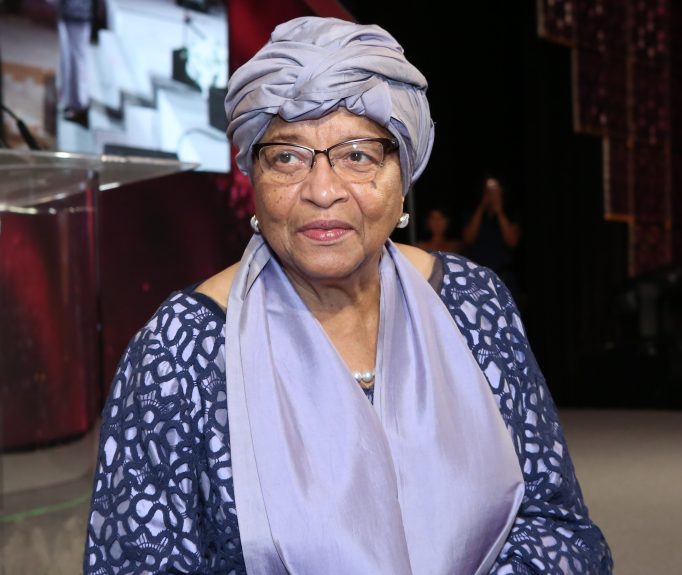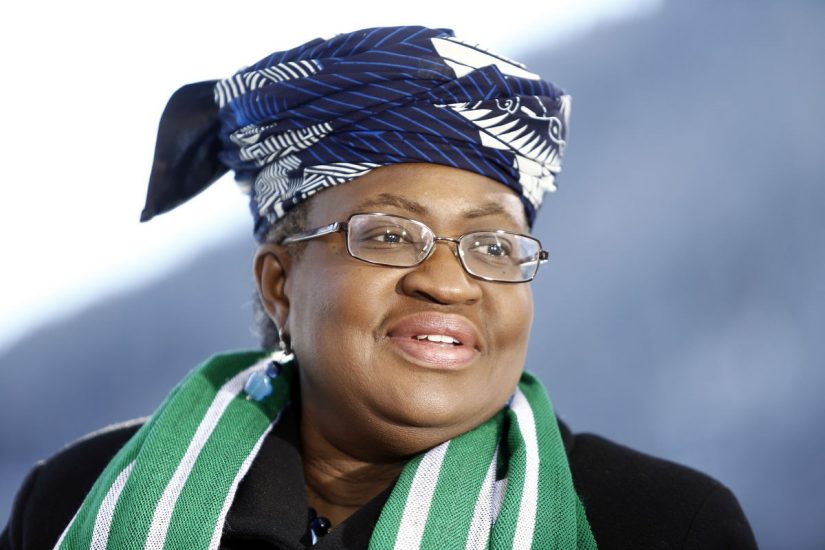
Hauwa Ali
In boardrooms and political chambers worldwide, a quiet but powerful revolution is taking place. Women are rising to leadership positions, proving time and again that they have what it takes to steer nations and businesses toward success. Yet, for every woman who makes it to the top, countless others struggle against invisible barriers—gender bias, stereotypes and institutional hurdles that have long favored men.
The question remains: What does it take for a woman to succeed in politics and business? From navigating systemic discrimination to mastering the art of resilience, women leaders have developed strategies to break through glass ceilings.
Despite progress, women in leadership still encounter formidable obstacles. Their journeys are often marked by battles against deep-rooted biases and systemic hurdles that their male counterparts rarely face.
A woman who speaks with authority is often labeled as “aggressive” or “bossy,” while a man exhibiting the same confidence is seen as “strong” and “decisive.” These double standards persist in politics and business, where leadership qualities admired in men—assertiveness, ambition, and competitiveness—are often criticized when displayed by women.
For instance, during elections, female politicians face scrutiny over their personal lives, appearance, and family responsibilities in ways that male politicians do not. In business, women in executive roles are often expected to “prove themselves” more than their male colleagues, even when they have the same or superior qualifications.
A Personal Story: The Struggles of a Female CEO Meet Ada, a Nigerian entrepreneur who built a successful fintech company from the ground up. Despite her expertise, she often found herself overlooked in meetings dominated by male investors. “They would direct technical questions to my male junior staff, assuming I wouldn’t understand the details of my business,” she recalls.
Ada had to work twice as hard to earn the respect that her male peers received automatically. Many leadership structures—whether in politics or corporate environments—were historically designed for men. Political parties, business networks, and investment circles often operate as “old boys’ clubs,” where decisions are made informally among a close-knit group of male elite. Women, excluded from these networks, find it harder to access funding, mentorship, and critical opportunities.
In Politics: Women struggle to get party nominations and funding for campaigns. Political parties favour male candidates, arguing they are “more electable.”
In Business: Women entrepreneurs receive less venture capital funding than men. Studies show that investors, who are mostly male, are more likely to fund businesses led by men, often due to unconscious bias. Society still expects women to bear the brunt of household responsibilities, even when they have demanding careers. In many cultures, a woman’s ambition is often seen as conflicting with her role as a mother or wife.
Many female leaders speak of the pressure to “do it all”—excel at work while managing a household. Unlike men, who are rarely asked how they balance career and family, women constantly face scrutiny over their ability to juggle both. During her campaign for a senate seat, Fatima, a Nigerian politician, was repeatedly asked whether she could manage “family duties” while serving in office.
Meanwhile, her male opponents were never questioned about their ability to balance work and family. “It was as if my leadership was automatically doubted simply because I’m a woman,” she said. Despite these challenges, women have developed strategies to thrive in their fields.
These strategies are not just about survival—they are about reshaping the system for the next generation. Recognizing the exclusivity of male-dominated networks, women have begun forming their own. Organizations like Women in Management, Business, and Public Service (WIMBIZ) in Nigeria, Lean In Circles, and global mentorship programs provide women mentorship, funding, and career opportunities.
Women’s Political Network groups like the African Women Leaders Network (AWLN) support female politicians by providing campaign funding and strategic advice.
Women-Led Investment Funds: Initiatives like the She Leads Africa Fund offer venture capital to women entrepreneurs, breaking the cycle of financial exclusion. One of the most effective ways for women to climb the leadership ladder is through mentorship. Female leaders who have navigated the system successfully now guide younger women, offering advice and support to help them avoid common pitfalls.

Former Liberian President Ellen Johnson Sirleaf, Africa’s first elected female head of state, has dedicated much of her post-presidency work to mentoring young women in politics. “If we don’t prepare the next generation of women leaders, we risk undoing the progress we’ve made,” she warns.
Self-Empowerment: Confidence, resilience, and refusing to back down have been key. Women in power often stress the importance of confidence. They have learned to push back against bias, speak up in male-dominated rooms, and demand the recognition they deserve.

Nigerian Senator Akpoti-Uduaghan’s determination to speak out against bias and demand recognition in the chambers underscores the ongoing struggle for women’s empowerment in politics. Her experiences serve as a poignant reminder of the resilience required to navigate and challenge entrenched gender biases within political institutions.

Ngozi Okonjo-Iweala, the Director-General of the World Trade Organization, is another prime example. Throughout her career, she faced skepticism, criticism, and outright sexism. Yet, through resilience and self-belief, she is one of the most influential women in global economics. “You must believe in yourself first,” she often tells young women. For true gender equality in leadership, systemic changes must occur.
This requires both policy interventions and shifts in cultural attitudes like:
Legislative Reforms: Enforcing Gender Inclusion in Leadership. Many countries have introduced gender quotas to ensure women’s representation in government. Nigeria, for example, is debating legislation to reserve 35% of political positions for women. Many countries are also closing the wage gap and ensuring equal pay for equal work which would make leadership roles more accessible to women.
Workplace reforms such as making leadership more inclusive with flexible work policies, and providing maternity leave, paternity leave, and remote work options can help women balance career and family. Also, enforcing strict anti-harassment policies in workplaces ensures women can work without fear of discrimination.
Changing cultural mindsets by teaching children about gender equality from a young age can help break down stereotypes.
More women in leadership should also be highlighted in the media to inspire young girls. The journey to gender equality in leadership is far from over, but progress is undeniable. Women are not just breaking barriers—they are rewriting the rules. The more women step into leadership, the more they pave the way for those who follow.
However, true progress requires collective action. Governments must pass supportive policies, businesses must create inclusive workplaces, and society must challenge outdated norms.
To the young girl dreaming of becoming a CEO or president: the road may be tough, but the world is changing. And with every woman who rises, the path becomes a little easier for the next. The future is female—and it’s just getting started.


